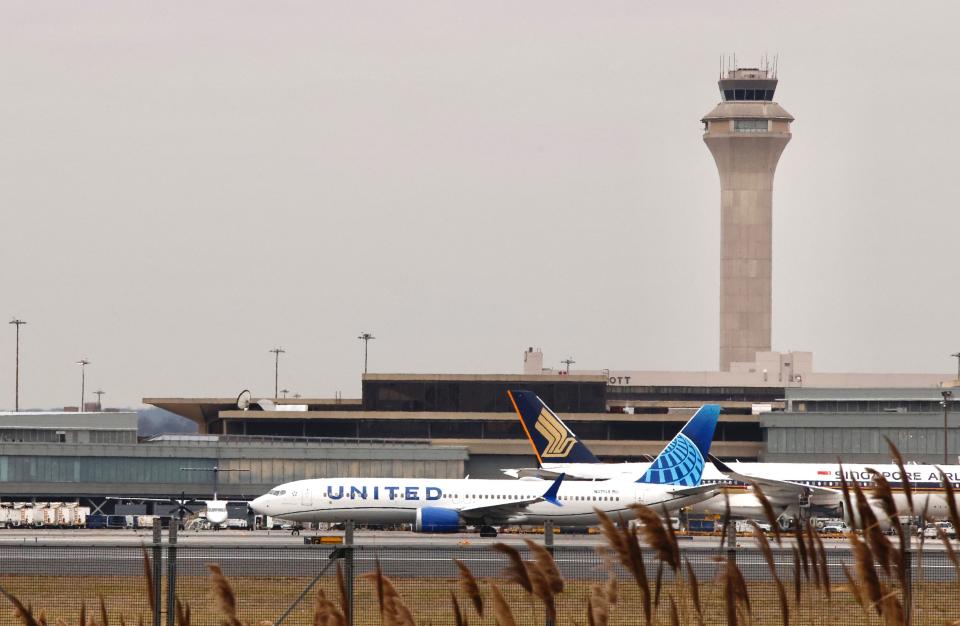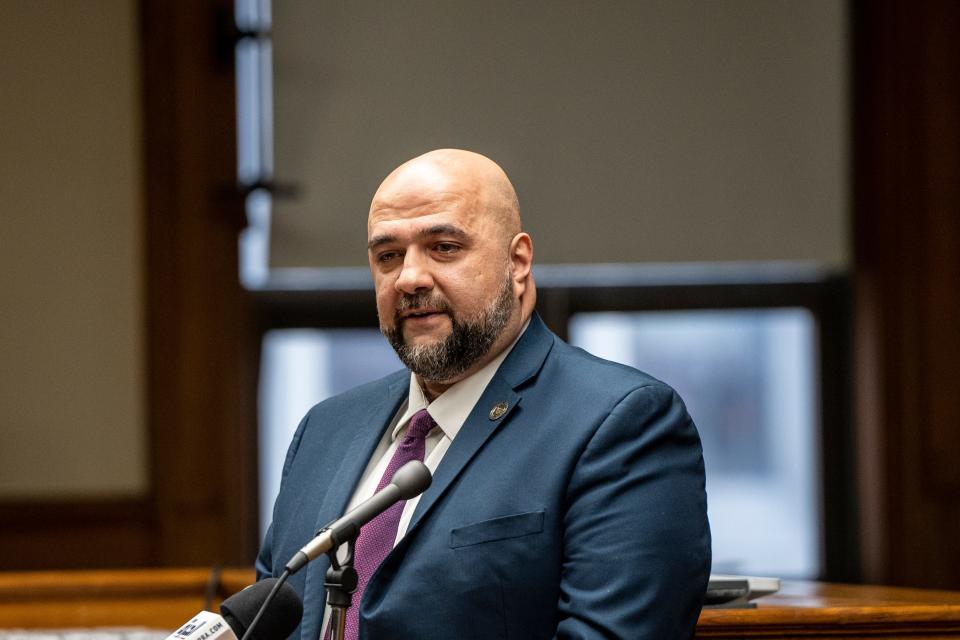Could Supreme Court tactic dismantle the terror watchlist? An appeal is asking just that
Five Americans, including a Paterson man, are questioning the legality of the federal terrorism watchlist as they ask the United States Court of Appeals for the 5th Circuit to revisit their case.
The four men and one woman say they were wrongly placed on the watchlist, subjecting them to interrogations and searches and burdening them or preventing them from flying, and that they had no meaningful way to challenge it.
In their appeal, filed in June, they argue that Congress did not grant federal agencies clear authority to create and maintain a federal watchlist, invoking the “major questions doctrine” now increasingly used in the Supreme Court. The doctrine allows justices to overturn a federal regulation of extraordinary political or economic impact if they think Congress didn’t “speak clearly” enough to authorize it.
“The federal government is claiming an ability to put an unlimited number of people, including an unlimited number of U.S. citizens, onto a list that affects almost every part of their lives,” said Hannah Mullen, a staff attorney for the Council on American-Islamic Relations, the advocacy organization representing the plaintiffs in Kovac v. Wray.

“The courts have said you have to point to a law,” Mullen added. “You have to point to a statute. You have to point to Congress saying, ‘Yes, we think the agency has this power and the government can do that.’”
The New Orleans-based court will decide in the next several months whether it will hear the appeal.
Grounded from flying
In 2014, Adis Kovac tried to visit Turkey to see family. He was pulled aside and questioned for several hours, missing his flight. He rebooked the next day but again was interrogated and searched and had his phone data downloaded. Kovac was questioned about his travel plans, religious views, life, family, friends and work. This time, he was barred from flying and lost the money he had spent on his ticket.
When he moved from Chicago to Paterson three years later, he was barred from flying again. FBI agents have also searched his home and electronics and questioned him and his parents. No one would tell him why he was being singled out for scrutiny.
After filing a federal lawsuit in Dallas in 2018, Kovac was removed from the no-fly list. But he does not know whether he is on other watchlists, including the larger Selectee List. Individuals on that list routinely face extra scrutiny at airports and border crossings.
Local: Despite multiple crackdowns, Trinitarios gang continues to terrorize Paterson
Co-plaintiffs Bashar Al-Jame, Abraham Sbyti, Suhaib Allababidi and Fadumo Warsame believe they are on the Selectee List, based on interrogations and invasive searches they have faced while traveling. In the lawsuit, Sybti said it was “unfair to be subjected to such treatment every time [he goes] to visit family or have a vacation” recalling scrutiny he faced while traveling to Mexico and Lebanon.
The plaintiffs filed traveler “redress requests” with the Department of Homeland Security, which responded that it cannot confirm or deny information about them but will review records to avoid incidents of misidentification.
The watchlist is also shared with thousands of law enforcement and private entities, affecting “traffic stops, field interviews, house visits, municipal permit processes, firearm purchases, certain licensing applications, and other scenarios,” the lawsuit says.
CAIR attorneys argued in the 2018 lawsuit that federal agencies violated their clients’ constitutional right to due process. In March, a Texas federal judge ruled against the plaintiffs, upholding the watchlist. U.S. District Judge Brantley Starr found that Congress had authorized the federal government to create a list of potential security threats, and that the list was not based solely on religion or ethnicity.
98% of names
The FBI operates the federal Terrorist Screening Database, commonly called the terror watchlist. Other government agencies can nominate individuals to the list. The watchlist list reportedly includes 1.5 million names, including thousands of U.S. citizens and green card holders and hundreds of thousands of foreign nationals. CAIR, which received two leaked copies of the 2019 watchlist, found in an analysis that 98% of the names were of Muslim origin.
The watchlist sparked renewed controversy in May when the White House disinvited Prospect Park Mayor Mohamed Khairullah, the longest-serving Muslim American mayor, from an Eid celebration. The Secret Service said he didn’t pass security clearance. He called CAIR, which informed him that his name was on the leaked list.

Civil liberties advocates say people have ended up on the terror watchlist because of where they have traveled and whom they know or have encountered. In some cases, individuals said they had been placed on the list after they refused to be informants for law enforcement.
Federal officials say the watchlist is a tool to keep Americans safe. Christopher Piehota, a former director of the Terrorist Screening Center, told Congress in 2014 that nominations cannot be based solely on race, ethnicity, national origin, religious affiliation or activity protected under the First Amendment. Federal officials say they regularly review the lists and that names are added and removed as result.
In a report about the watchlist released in June, CAIR called the watchlist system "a substantial power without precedent in American history“ that led not to a reduction in terrorism, but to "painful, farcical, and often dangerous abuses of Muslims.”
What is the 'major questions doctrine'?
Mullen, the CAIR attorney, hopes that the 5th Circuit Court of Appeals will determine that the federal agencies behind the watchlist do not meet the standard of clarity required under the “major questions doctrine.”
The doctrine was rarely used until two years ago. The Supreme Court has since invoked it to strike down liberal policy initiatives including greenhouse gas regulations, student debt relief and a COVID-related eviction moratorium. Mullen argues that that the "major questions doctrine" applies here, too.
“When we analyzed it the way courts have analyzed these other claims of executive agencies in past cases, we don’t think the government meets the test the courts have laid out,” she said.
Ultimately, she hopes the court will remand the case back to a district court to review the watchlist once again. “Our top-line ask is to dismantle the watchlist,” Mullen said.
This article originally appeared on NorthJersey.com: US Supreme Court tactic could end terrorism watchlist

